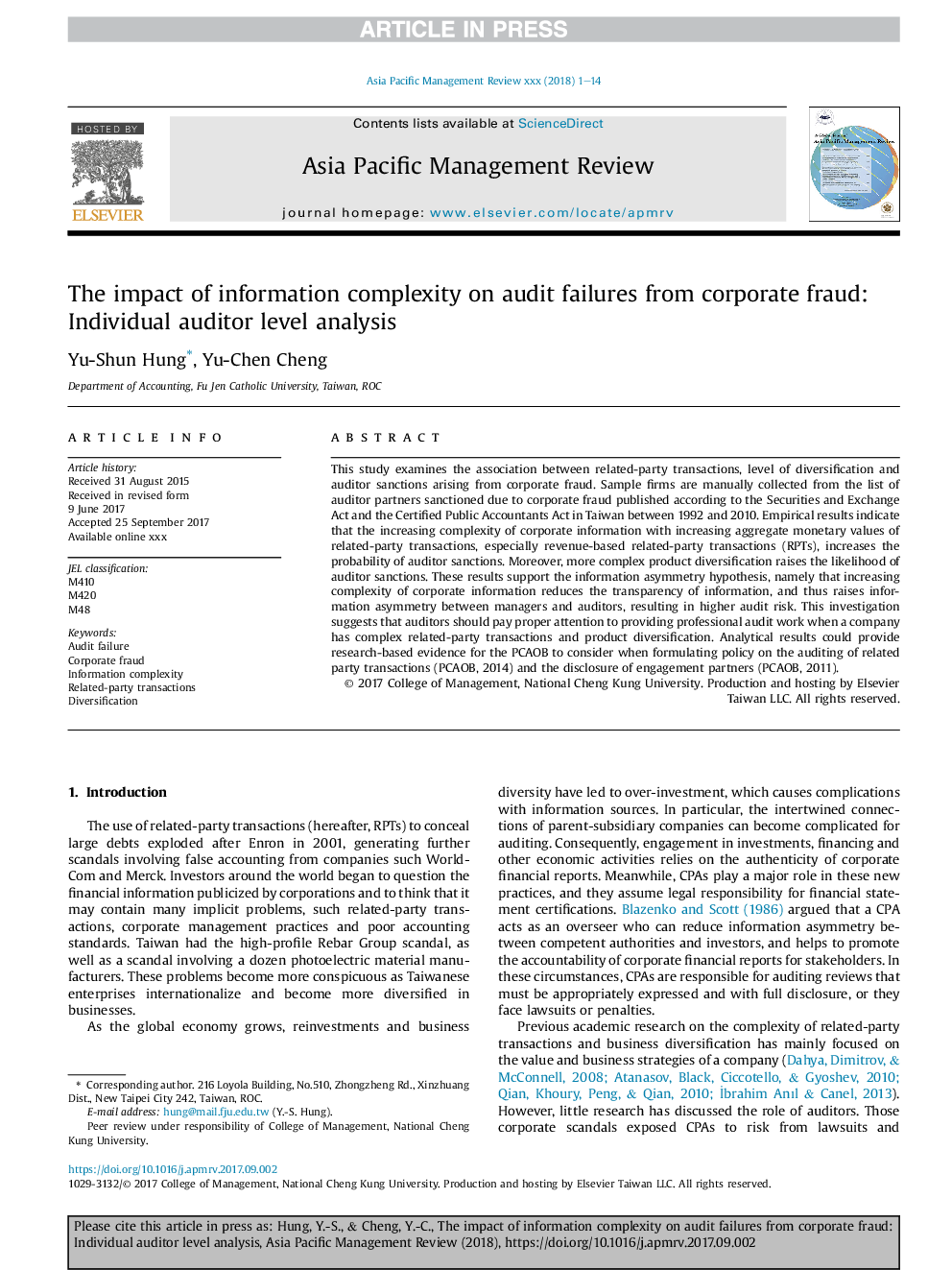| Article ID | Journal | Published Year | Pages | File Type |
|---|---|---|---|---|
| 7428264 | Asia Pacific Management Review | 2018 | 14 Pages |
Abstract
This study examines the association between related-party transactions, level of diversification and auditor sanctions arising from corporate fraud. Sample firms are manually collected from the list of auditor partners sanctioned due to corporate fraud published according to the Securities and Exchange Act and the Certified Public Accountants Act in Taiwan between 1992 and 2010. Empirical results indicate that the increasing complexity of corporate information with increasing aggregate monetary values of related-party transactions, especially revenue-based related-party transactions (RPTs), increases the probability of auditor sanctions. Moreover, more complex product diversification raises the likelihood of auditor sanctions. These results support the information asymmetry hypothesis, namely that increasing complexity of corporate information reduces the transparency of information, and thus raises information asymmetry between managers and auditors, resulting in higher audit risk. This investigation suggests that auditors should pay proper attention to providing professional audit work when a company has complex related-party transactions and product diversification. Analytical results could provide research-based evidence for the PCAOB to consider when formulating policy on the auditing of related party transactions (PCAOB, 2014) and the disclosure of engagement partners (PCAOB, 2011).
Keywords
Related Topics
Social Sciences and Humanities
Business, Management and Accounting
Business, Management and Accounting (General)
Authors
Yu-Shun Hung, Yu-Chen Cheng,
